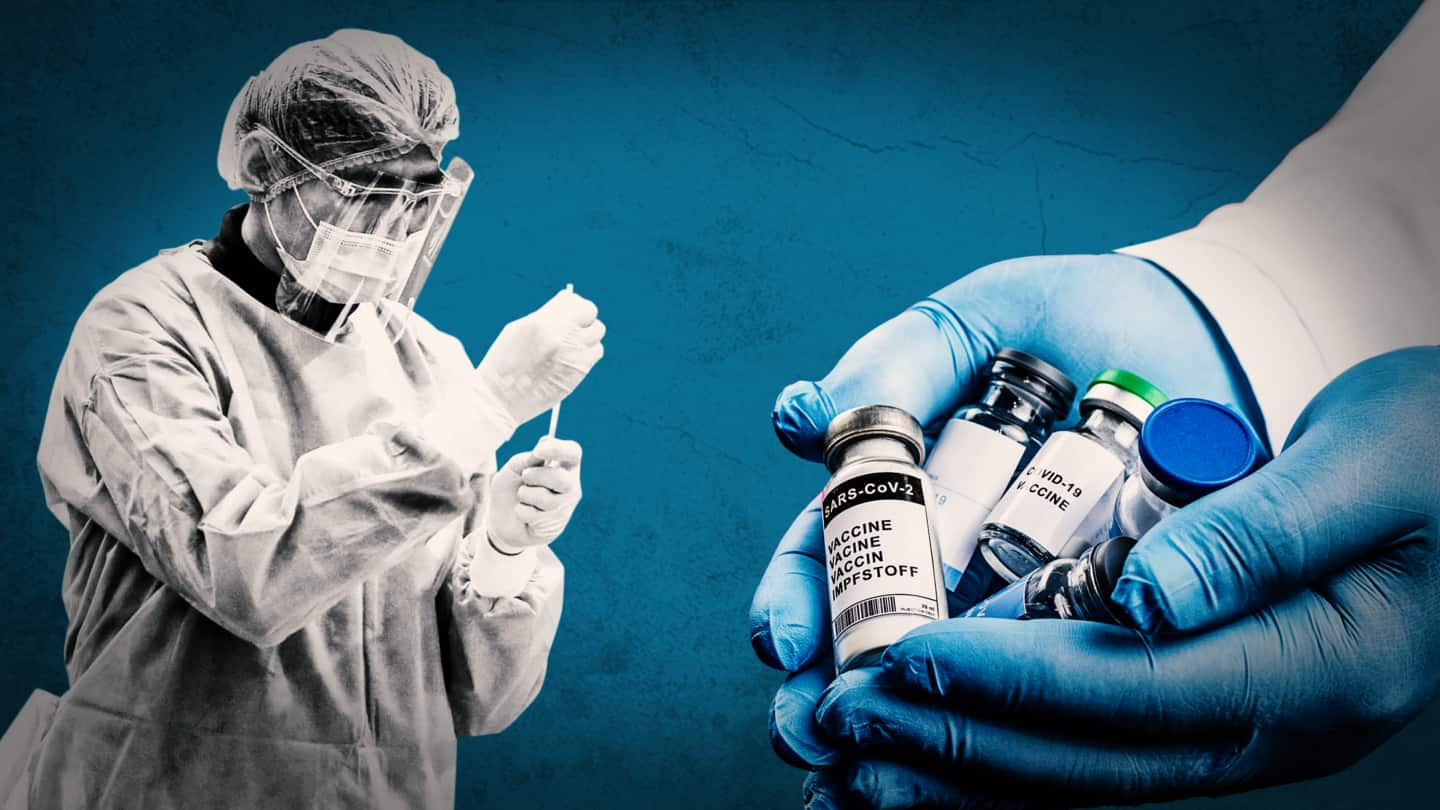
Need more data to approve mixed vaccines, says AIIMS chief
What's the story
Mixing two different coronavirus vaccines could be potentially beneficial, but more data is needed before a decision on the practice can be taken, said Dr. Randeep Guleria.
Dr. Guleria is the chief of New Delhi's All India Institute of Medical Sciences (AIIMS).
Several countries have notably begun testing or allowing the practice of mixing two different COVID-19 jabs.
Quote
'Fighting variants possible by mixing COVID-19 vaccines'
"Fighting more infectious variants like Delta Plus and Delta is possible through mixing two different COVID-19 vaccines. However, more data is required before a final approval is given to combine two vaccines," Dr. Guleria told NDTV this morning.
Statement
It could trigger slightly higher side effects: Dr. Guleria
"This is something that has been looked at in the past - giving one vaccine as the priming shot and another as the booster," Dr. Guleria said.
The practice has earlier been used to treat various diseases, including the Ebola virus.
However, the doctor also warned that mixing different vaccines could lead to greater side effects in the short term.
Information
Indian government studying efficacy of mixed jabs
Last month, the central government had said it would study the safety and efficacy of mixing various combinations of COVID-19 vaccines. The results of that study would be out in the next few months, it said.
Studies
What does the available data suggest?
Recently, a study conducted in Spain found out that mixing Oxford-AstraZeneca and Pfizer-BioNTech COVID-19 vaccines produced a "potent immune response" against the coronavirus.
Another, large-scale study in this regard is being carried out in the United Kingdom.
The preliminary results of that study showed more side effects in the short term, though data on efficacy still remains pending.
Vaccination in India
How is the vaccination drive going in India?
India has three approved coronavirus vaccines for adults - Oxford-AstraZeneca's Covishield, the indigenously-developed COVAXIN, and Russia's Sputnik V.
There is no approved vaccine for children as yet.
More than 30 crore doses of COVID-19 vaccines have been administered so far.
Over 18% of the total population has received at least one shot, but only about 4% have been fully inoculated.